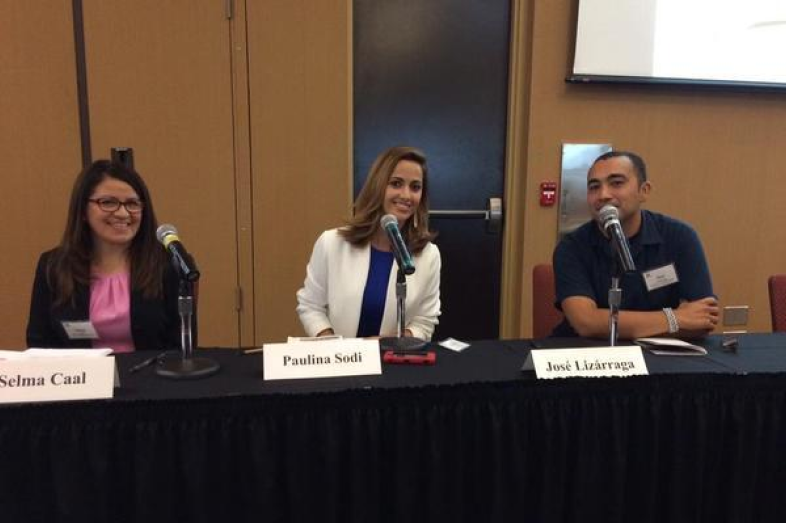

Latino children enter kindergarten with socioemotional skills that are on par and sometimes even better than their non-Latino peers’ abilities. This means they’re on track in their capability to make friends and behave in school. But Latinos also have a greater probability of arriving to their first day of classes behind their peers academically.
In a session about preparing Latino youth for academic success at the Education Writers Association’s second annual Spanish-Language Media Convening, Selma Caal, a researcher for Child Trends’ Hispanic Institute, said the reasons for these disparities are complicated. Teachers, journalists, researchers and others must keep in mind that the data don’t say all Latinos are unprepared for school; other factors are at play. Children with lower socioeconomic status tend to show up to school with fewer academic skills. The same is true for those whose parents have lower educational attainment and those students who haven’t gone to pre-K.
Regardless of academic and class background, however, parents can do many things in their roles as their child’s first teachers, Caal said. First and foremost is to read to the child. Parents who can’t read should make up stories, perhaps while looking at picture books; they should sing songs, play games and practice art. They should show enthusiasm for books and reading, to help their children develop an interest. And they should talk about the books afterward, asking their children to reflect on the story and prove they understand the plot.
“The important thing is to help children develop their vocabulary,” Caal said. “This helps them learn how to think.”
José Ramón Lizárraga, a graduate student instructor and researcher at the University of California-Berkeley, also participated in the EWA panel, which was moderated by Paulina Sodi, a reporter for Telemundo Houston. Lizárraga’s research through the Connected Learning Research Network shows that Latino parents are very interested in helping their children succeed academically. Mothers often organize their days so children can participate in academic activities and structure home Internet rules to support learning. Specifically, Lizárraga’s research showed an emphasis on using digital tools in family contexts, which may count against Latinos when it comes to scholarly practices that favor individual learning.
“We all have to recognize that academic learning is about more than just reading and writing,” Lizárraga said, adding that learning can happen outside of the ways defined by schools.
Latino cultures often emphasize socializing children to care about family and relate to others. But reading does not have to be all about sitting in the corner alone, and it also doesn’t have to be in opposition to these values. Caal pointed out that reading a recipe or a graphic novel also counts, and Latino families should embrace the idea that reading can be fun.